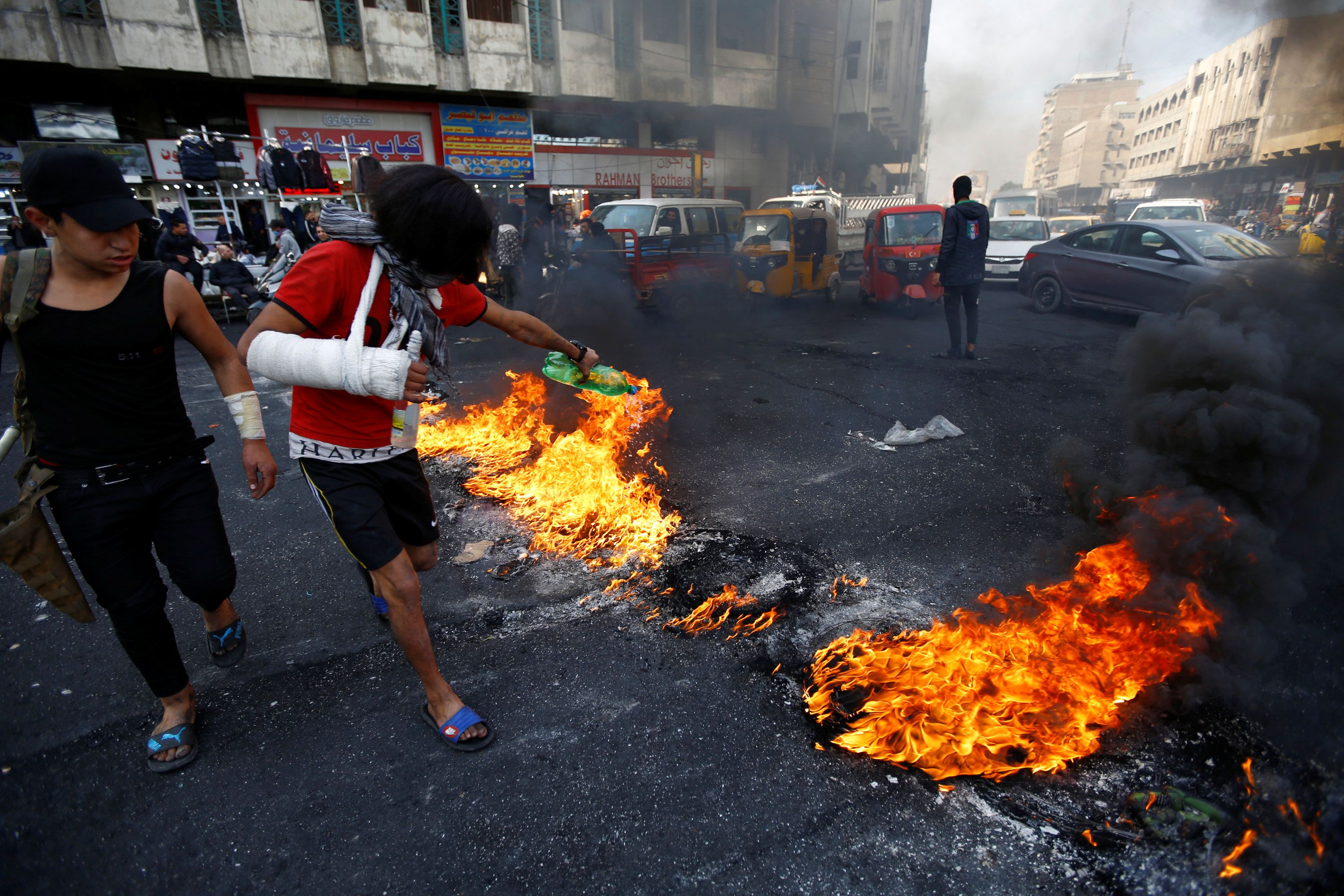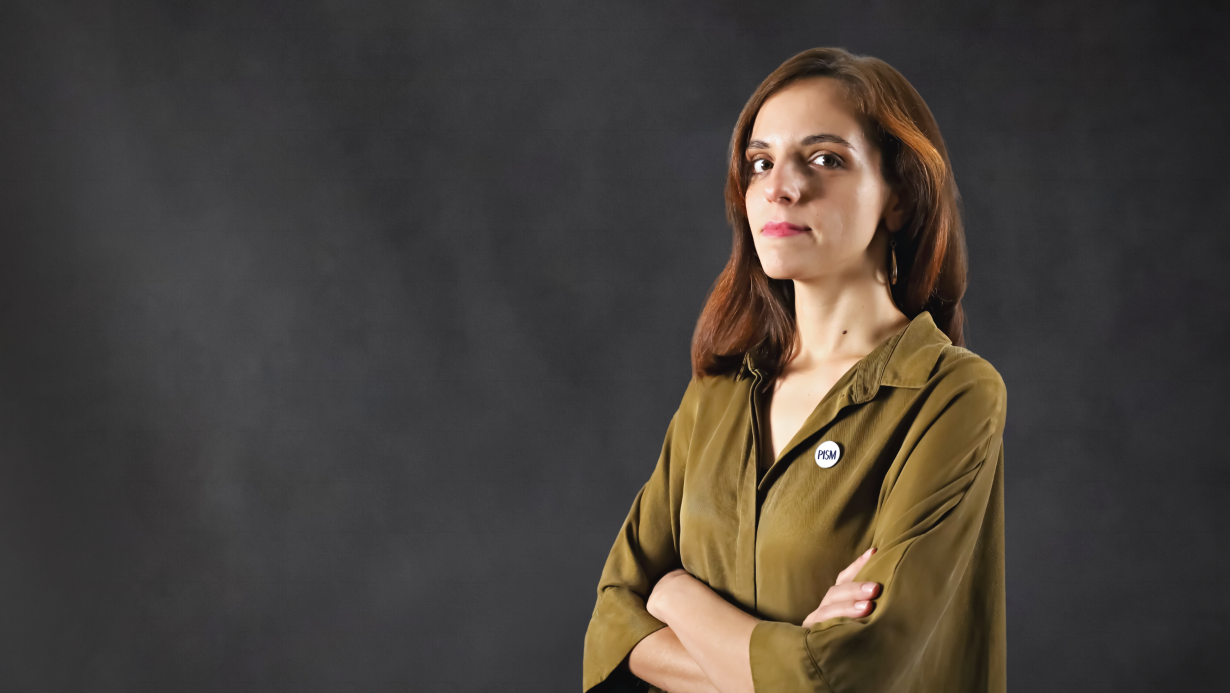The Political Situation in Iraq in Light of Mass Protests

Causes and Course of the Protests
The demonstrations that have been ongoing since the beginning of October were caused by frustration with widespread corruption (Iraq ranks 168th out of 180 countries in the Transparency International index) and unemployment. They were preceded by sporadic manifestations by unemployed university graduates. The dismissal of the popular hero of the anti-ISIS war, General Abd al-Wahab al-Sadi, from the post of anti-terrorist forces commander, exacerbated the situation. In view of Sadi’s cooperation with the U.S. in the international coalition against ISIS and his criticism of Iranian influence, the protesters regarded his dismissal as the authorities’ acquiescence to the People’s Mobilisation Forces (PMF). The PMF is composed of more than 40 militias, mainly Shiites, to whom Iran provides financial and military support. In 2016, following the PMF’s fight against ISIS, the Iraqi authorities included them in the security forces, guaranteeing their fighters privileges equal to those of army members.
The demonstrations, though, are not rooted in sectarian divisions, like in the past. Iraqis from Shiite cities in the south are protesting the mostly Shia government. Sunni and Kurdish regions remain calm, although their inhabitants support the demands of the protesters—Kurds from Iraqi Kurdistan planned to demonstrate in a gesture of support for the protesters but did not obtain permission from the regional authorities. The growing wave of violence in which nearly 450 people have died, the determination of the demonstrators whose demands are backed by the EU, U.S., UN, Sistani and the Muqtada al-Sadr—the head of the party constituting the majority of the ruling coalition and a well-known Shiite cleric—led to the resignation of the prime minister.
Internal Context
Iraq’s internal problems are caused by the poor economic situation and the weakness of the political system. These difficulties can be attributed to improper budget allocation, corruption, and inefficiency of the state sector. Almost half of the 2019 budget was allotted to public sector wages and social support for government employees. Moreover, in 2014, the state paid salaries to about 50,000 “ghost soldiers”, men who had bribed their commanders to avoid serving in the army. In 2013, before the war with ISIS, which additionally burdened the state economy, only 44 out of 176 state-owned enterprises were profitable. Iraq’s economy, based almost 90% on the oil industry, remains vulnerable to regional conflicts and external factors shaping the resource’s price on the market. Since 2011, these problems have been resulting in outbreaks of social unrest, which this year turned into a grassroots anti-government movement.
The inefficiency of the government is enhanced by its fragmentation. In the May 2018 elections, none of the 36 parties that entered parliament received more than 15% of the vote. The Sairun coalition of Sadr’s party and the Iraqi Communist Party, which opposes U.S. and Iranian influence, won the most seats (54 out of 329). The second-best result (48 seats) was won by the Iran-supported Fatah bloc. After the elections, both blocs formed competitive alliances with other parties. This led to a feud over the parliamentary majority and to political stagnation. Five months later, the parliament named a president, who, striving to find a compromise between the blocs, appointed Mahdi, who was not associated with any party, as prime minister.
Iraq is a federal re According to its consensual democracy model, the president of the state must be a Kurd, the prime minister Shiite, and the president of parliament Sunni Muslim. The protesters claim that imposing political functions on specific ethno–religious groups contribute to the government’s corruption and clientelism. They demand changes in the system and new elections. The representative of the UN mission in Iraq proposed a reform plan, the implementation of which would be monitored by the UN. Measures proposed by the UN include a national dialogue, obligation to submit public property declarations by politicians, and electoral system reform. The plan was supported by Sistani. In turn, the government of the Iraqi Kurdistan Region is concerned that the reforms may result in the loss of independence and withdrawal of the negotiated budget quota that will be transferred to the autonomous region from 2020.
Despite the announcement in 2017 by the presidents of Iraq and the U.S. that ISIS had been defeated, the militants are still present in Iraq (about 10,000) and the growing destabilisation threatens to strengthen their ranks. The war against ISIS led to the internal displacement of 1.8 million Iraqis and the destruction of parts of the country. Sunni regions were particularly affected. The Iraqi authorities have calculated that reconstruction of damaged areas will cost $88 billion. Since 2015, the EU has donated €309 million to Iraq for this purpose.
International Context
The rivalry between Iran and the U.S. has a key impact on Iraq’s foreign policy. While protesters are demanding that Iran’s role in the state be restricted (in Najaf and Karbala cities, Iranian consulates were set on fire), Iran's supreme leader Ali Khamenei condemned the demonstrations and criticized Mahdi’s resignation. He defined the Iraq protests as “chaos” and blamed Western powers for initiating them. At the same time, the Iranian authorities supported the Iraqi government. Ghasem Soleimani, commander of the Iranian Al-Quds forces, participated in the drafting of a reform plan that would allow Mahdi to stay in power. The PMF militias were involved in the brutal pacification of the protests, which strengthened anti-Iranian sentiment among demonstrators. Responding to these actions, Sistani criticized the use of the Iraqi protests in the rivalry between the U.S. and Iran, and on 29 October, the Iraqi president announced a number of reforms, including restrictions on political parties supported by Iran.
The U.S. imposed sanctions on three leaders of one of the PMF’s militias—Asaib Ahl al-Haq—for the brutality against the Iraqi protesters. The U.S. supports the electoral system reform plan. As part of its “maximum pressure” policy towards Iran, the U.S. is pushing the Iraqi government to strengthen economic relations with American allies in the Persian Gulf and reduce economic ties with Iran, which is the main gas supplier to Iraq. The U.S. plans to donate $910 million in aid in 2020 for development and defence in Iraq.
Conclusions
The Iraqis’ reluctance to accept Iranian influence is a consequence of the widespread perception that Iran is co-responsible for the poor quality of state governance and the increase in regional tensions between the U.S. and Iran. Both Iran, which has control over the Shiite militias, and the U.S., which provides financial and military support for Iraq, have tools with which they can defend their influence. This could lead to an escalation of violence and military and political activities by both countries on Iraqi territory.
The brutal suppression of the protests increases anti-government sentiment. To prevent further violence, which is in the interest of Poland and Europe, the EU may offer assistance in conducting governmental reform. Residents of Sunni regions criticize the Shiite-dominated government, which they believe only pursues the interests of their religious group and the members of the political elite. The reform of the political system will, therefore, have to consider the need for the redistribution of funds from the oil-rich Shiite south to the Sunni regions that require reconstruction and reflect a significant Kurdish presence. The EU may also encourage the Iraqi authorities to limit the number of employees in the state sector through development aid, for example, financing training for those requiring a profession change. The EU can work with the Iraqi government to define areas with the greatest growth potential to help diversify the country’s economy. International support is essential for the successful reconstruction of Iraq, which is important also for Poland, whose soldiers take part in the NATO mission to combat terrorism and create a transparent and inclusive security architecture in Iraq.


